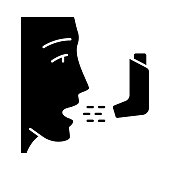Avoid Asthma Triggers
We must be educated of asthma triggers in order to help prevent them. If you or anyone you know or love, struggles with asthma, you know how critical it is to avoid any kind of trigger that would spur on an attack. You can take your preventative medicine, of course, but as soon as you enter a dusty room or even go outside, allergens are inhaled and your airways may constrict, causing another attack. Many people with asthma keep an inhaler with them to prepare for going outside or into the workplace. But we cannot control these environments, unfortunately. On a better note, you can prevent asthma triggers in your own home! The main triggers in your average household are dust mites, molds, and pollens. Dust mites may be the most common asthma trigger at home. How can you protect yourself? Wash your bedding in hot water every week and make sure your pillows and bedding don’t contain feathering. Non carpeted floors are great because they are easily cleaned. If you don’t have...
